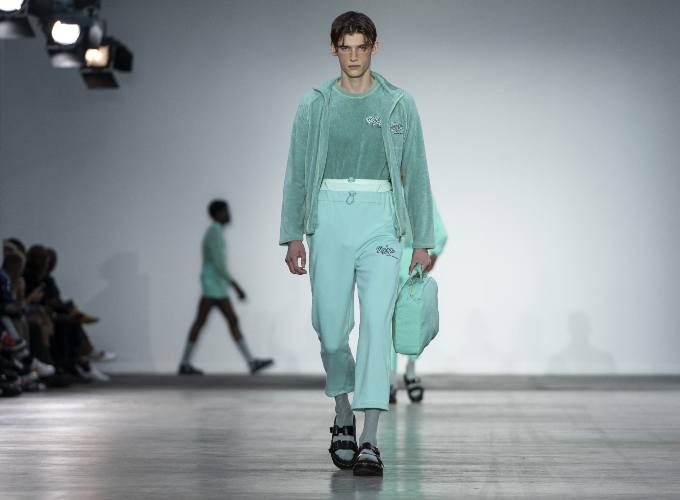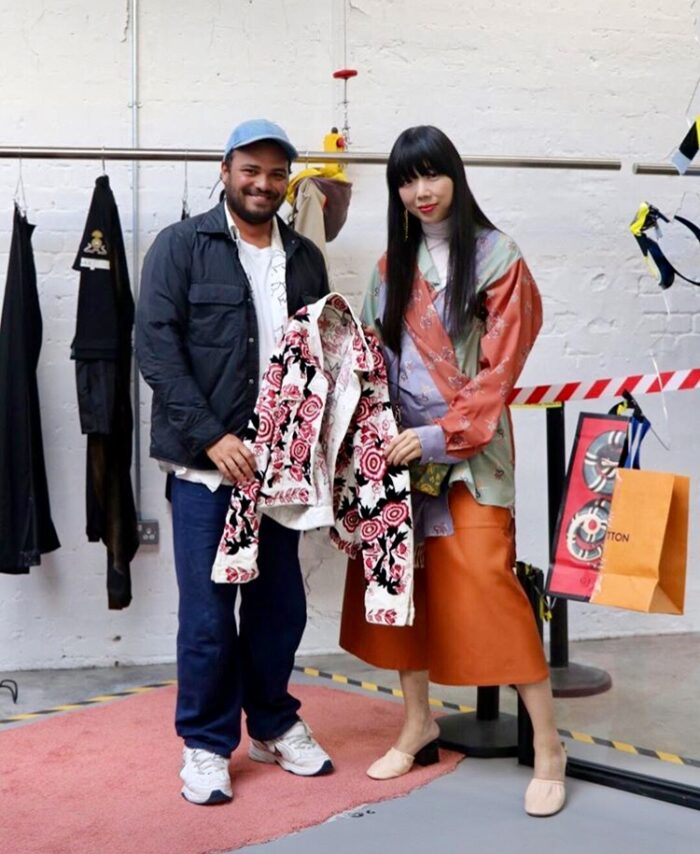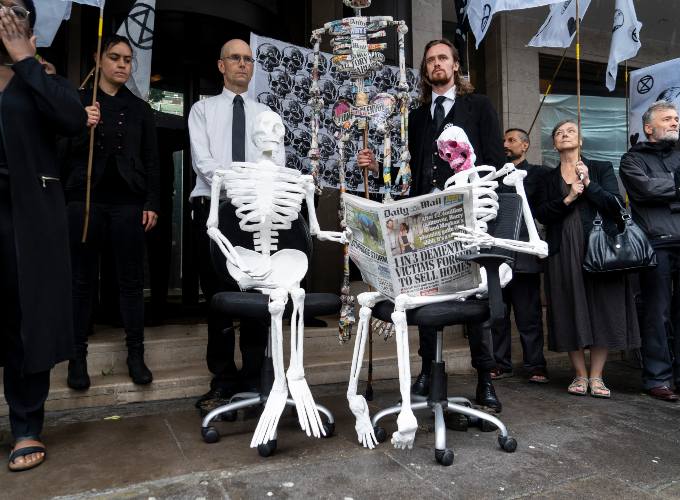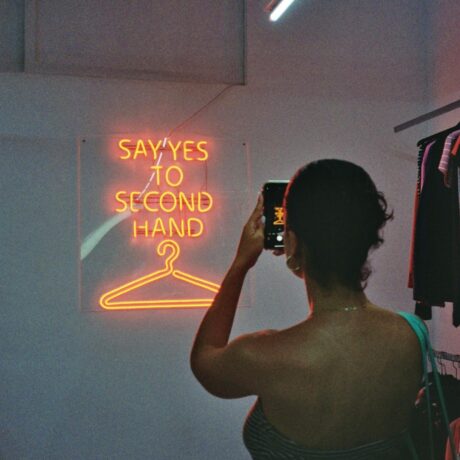Shutting Down Fashion Weeks is Not the Answer
This post originally appeared on The Voice of Fashion, and is an op-ed by Fashion Revolution co-founder Orsola de Castro.
***
Redesigning fashion weeks as hubs of ethical sustenance instead of getting them shut down should be the way forward.
Extinction Rebellion (XR), a socio-political movement is calling for London Fashion Week (LFW) to be cancelled. They plan a series of mass civil disobedience events starting September culminating in a symbolic “funeral” for the death of catwalks everywhere.
I share the sentiment, but think differently.
We are, undeniably, at a crisis point. Human beings have always exploited and degraded fellow humans, but we didn’t quite have the capacity to shamelessly exploit and degrade nature the same way until recently. This attitude is bringing us (and our entire earthly ecosystem) to the brink of extinction. This is unprecedented and does require immediate, extreme measures.
However, in my opinion cancelling major international fashion weeks is not the way forward, not yet.
The better option is to urgently redesign them and upgrade them to become hubs of what fashion needs to be, and fashion needs to be ethical and sustainable.

Cancelling feels like giving up: but then what? Radical transformation implies we all have to work, together (underlined, in bold, caps and italic), to make changes.
“Together” includes multi-disciplinary, cross-platform collaboration between all main international fashion weeks across the world to avoid duplication, reduce travel and minimise their collective, burdensome impact, and looking at the smaller, local fashion weeks with a new perspective.
LFW has been a hub of creative innovation (and inspiration) since its inception.
It radically changed the way we see fashion, it launched insanely cool designers into the fashion stratosphere while simultaneously fostering, supporting and celebrating smaller, even tiny talents.
Why Estethica Mattered
Estethica, the British Fashion Council’s sustainable fashion initiative that ran at LFW from 2006 to 2014 was a pioneering example of placing both sustainable products and conversations around sustainability within the mainstream fashion panorama. I am pretty sure that had it continued (disclaimer: I was one of its founders) the conversation on the role of international fashion weeks would have been at the top if its agenda for some time now.

Estethica launched British designer Christopher Raeburn’s career and nurtured many sustainable brands that are still active today. We were regularly visited and written about by top fashion journalists, and published the incredibly successful Estethica Review which was widely considered the bible of all things sustainable at the time. I remember being as proud of our amazing designers as I was of our differentiated recycling bins and vegan canapés, in 2006.
I am still completely committed to finding alternative ways for showcasing young brilliance. The Fashion Revolution’s ‘Fashion Open Studio’ initiative, where designers open their creative spaces to the public to foster better understanding of people and processes via workshops, talks and demonstrations, is the opposite of the catwalk show.
Fast forward to now and emerging designers embedding sustainability in their processes are multiplying on a global scale. They showcase their work from Milan (where Sara Maino’s brilliant Vogue Talent initiative celebrates 10 years this September) to Mumbai (Lakmé Fashion Week has jumped ahead leaps in bounds over the past few years with a series of remarkable initiatives during its Sustainable Fashion Day).
Young Talent Needs Support
Young designers need exposure—why shut down the market now that we are seeing talents on the brink of providing us with positive, previously unimagined, creative solutions? Young designers who can’t afford (or don’t wish to be a part of) giant distribution networks rely on trade events to develop relationships with buyers. Also with factories and suppliers, with the press. Delay those buyers, ban that press, and we will lose those talents.
On the other hand, this disruption is nothing for the big offenders, the big brands. It will not interfere in any way or prevent them from doing business. For them, LFW is show time, their shows are expensively beamed online anyway. No amount of street blockages and delaying press and buyers will interfere with their business models.

The only way to disrupt business as usual isn’t to interrupt trade momentarily but by studiously undermining its core. If fashion weeks were the place where we could openly discuss disinvesting in growth to invest in social and environmental prosperity throughout the supply chain, challenging all aspects of excess and conspicuous consumption, we would be way more impactful in the long term.
Fashion Weeks: New, New
Make fashion weeks rigorous. Make them irreverent. Make them challenging. Let them exist for trade, to honour craft, to foster good business and provide dignified livelihoods globally, not for spectacle and superficiality alone.
From no-brainers such as blanket bans on plastic on-site, backstage, in bars and at parties to more forward thinking measures to diminish their environmental footprint and negative impact and foster collaboration and best practice, there are many creative, strategic, technological, holistic, common sense, short-term and long-term potential solutions to explore, and implement.
I also believe that we should support each other, as campaigners and activists, because ultimately we share the same goal, even though we may have different calls to action.
What we need is mobilisation of individual agencies and mobilisation of citizens, along with stricter legislations and mandatory brand accountability. I totally see the point of disrupting systems to achieve systemic change; it is only that being disruptive and constructive need to happen at the same time.
Baptism Not Funeral
However, Extinction Rebellion’s chosen metaphor of the funeral unsettles me: If there is the need for a ceremony of sorts, a public, ‘out with the old and in with the new’ moment in time, why make it a funeral?
Real people have died for fashion in disasters like Shirtwaist, Tazreen and Rana Plaza. There have been countless farmers’ suicides, deaths from pulmonary silicosis as a result of denim sandblasting; toxic tanneries, pesticide poisoning, the list goes on and on.

A staged funeral won’t be honouring those lives, it won’t do anything at all for the survivors, for the families of the victims, for fashion supply chain workers worldwide, its theatricality completely lost on the people who suffer our consequences.
Until we have an overarching set of solutions to ensure that the future of consumption is about better made products designed for disassembly and longevity, made by a global workforce that is fundamentally better paid and works in a safe environment, we are better off drastically ameliorating this system, rather than destroying it before we know how to create a new one.
I would rather we made the point with a Baptism, rather than a funeral, celebrate the onset of a system we trust will work, rather than mourning one that has ceased to be relevant.








